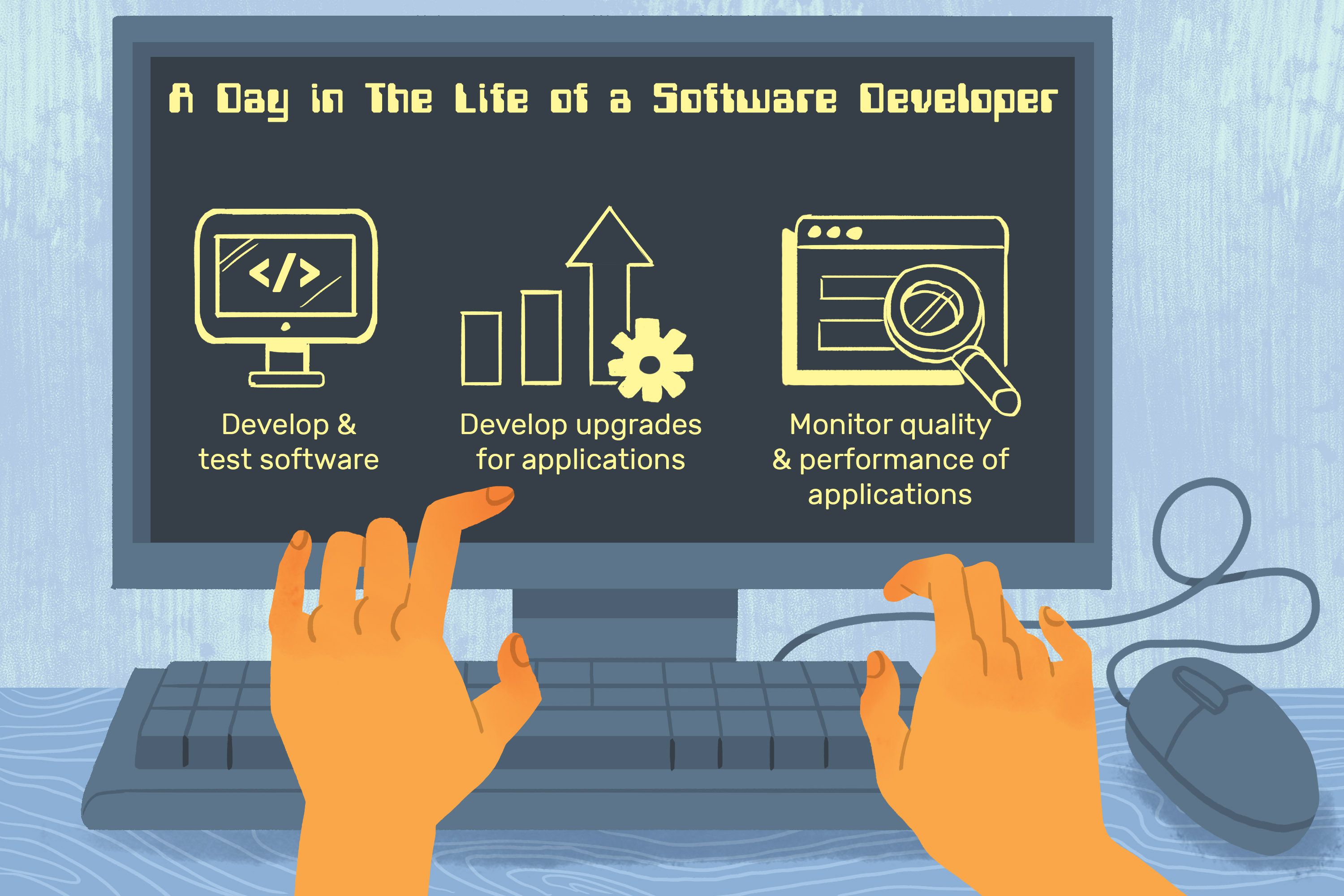
The job prospects for software developers are excellent, driven by the rapid growth of technology, digital transformation across industries, and the ever-increasing reliance on software for personal and business applications. This demand spans various industries, making software development one of the most sought-after career paths in technology.
1. Increasing Demand
- Core Drivers:
- Organizations are automating processes, requiring software solutions.
- New technologies, such as AI, blockchain, and IoT, create demand for specialized software.
- Digital transformation in industries like finance, healthcare, and education drives growth.
- Job Growth: The U.S. Bureau of Labor Statistics (BLS) projects a 25% growth in software development jobs from 2021 to 2031, much faster than the average for other professions.
2. Key Roles in Software Development
- Frontend Developer: Focuses on user interfaces and design.
- Backend Developer: Works on server-side logic and databases.
- Full-Stack Developer: Combines frontend and backend expertise.
- Mobile App Developer: Builds apps for iOS, Android, or cross-platform frameworks.
- Game Developer: Specializes in creating video games for consoles, PCs, and mobile devices.
- Systems Developer: Develops operating systems and hardware-level applications.
- DevOps Engineer: Bridges development and operations to ensure efficient software delivery.
- Embedded Systems Developer: Writes software for hardware devices like IoT gadgets and automotive systems.
3. Industries Hiring Software Developers
- Technology: Core software products, SaaS platforms, and tech innovation.
- Healthcare: Medical software, patient management systems, and telemedicine apps.
- Finance: Banking applications, trading systems, and fraud detection software.
- Entertainment: Streaming platforms, gaming software, and interactive media.
- Retail and E-commerce: Platforms for online shopping, supply chain, and customer engagement.
- Automotive: Software for autonomous vehicles, navigation, and infotainment systems.
- Government and Defense: Security systems, public service software, and defense tech.
4. Skills in Demand
Core Programming Skills:
- Languages: Python, Java, C++, C#, JavaScript, Ruby, Go, and Kotlin.
- Frameworks: React, Angular, Django, Spring, and .NET.
- Databases: SQL (MySQL, PostgreSQL) and NoSQL (MongoDB).
Additional Technical Skills:
- Version Control: Git/GitHub.
- Cloud Platforms: AWS, Google Cloud, and Azure.
- API Development: RESTful and GraphQL.
- DevOps Tools: Docker, Kubernetes, Jenkins.
5. Emerging Trends Shaping Job Prospects
- AI and Machine Learning Integration: Development of AI-powered tools and applications.
- Cloud-Native Applications: Building software optimized for cloud environments.
- Low-Code/No-Code Platforms: Supporting non-developers while requiring skilled developers for complex tasks.
- Web3 and Blockchain: Applications for decentralized systems and cryptocurrencies.
- Cybersecurity: Software that ensures data protection and secure transactions.
- AR/VR Development: Creating immersive experiences for gaming, education, and training.
- Quantum Computing: Software designed for quantum systems.
6. Certifications and Education
- Popular Certifications:
- Microsoft Certified: Azure Developer Associate
- Oracle Certified Java Programmer (OCJP)
- AWS Certified Developer – Associate
- Certified Kubernetes Application Developer (CKAD)
- Formal Education:
- Degrees in Computer Science, Software Engineering, or related fields.
- Many developers also succeed with bootcamp certifications and self-taught knowledge.
7. Salary Expectations
- Entry-Level Developers: $60,000–$90,000/year.
- Mid-Level Developers: $90,000–$120,000/year.
- Senior Developers: $120,000–$180,000/year or more.
- Specialized Roles (e.g., AI, blockchain): $150,000–$250,000/year.
8. Career Progression Opportunities
- Technical Leadership: Roles like Software Architect or Technical Lead.
- Management: Transitioning to positions like Project Manager or Chief Technology Officer (CTO).
- Entrepreneurship: Launching software-focused startups.
- Specializations: Diving into niches like game development, AI, or embedded systems.
9. Challenges in Software Development Careers
- Continuous Learning: Staying updated with rapidly evolving technologies and frameworks.
- Demanding Deadlines: High-pressure environments, especially in agile teams.
- Complex Problem-Solving: Dealing with intricate system requirements and debugging.
10. How to Prepare for a Career in Software Development
- Build a Portfolio: Showcase projects on GitHub, GitLab, or personal websites.
- Gain Experience: Participate in internships, freelancing, or open-source contributions.
- Network: Join developer communities like Stack Overflow, Reddit, or GitHub forums.
- Stay Updated: Follow tech blogs, attend meetups, and complete online courses.
11. Long-Term Outlook
Software development is expected to remain one of the most rewarding and stable career paths due to the continual evolution of technology. The rise of new fields like quantum computing, general AI, and sustainability tech will create new opportunities.
Software developers will continue to shape the digital world, making it an exciting and impactful career choice.




